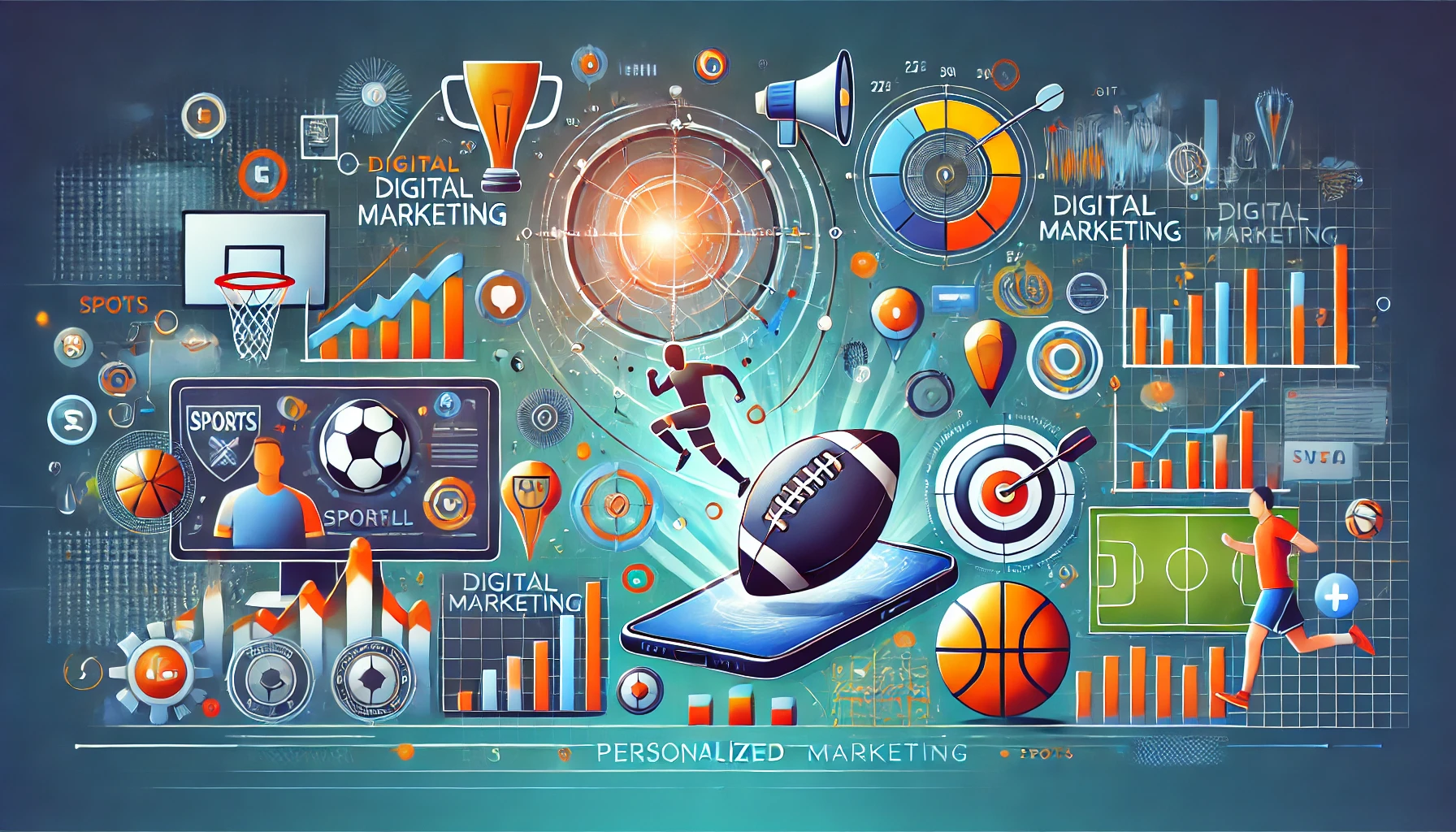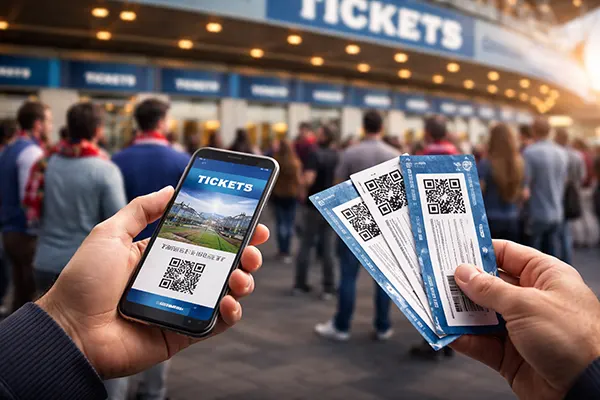
The Role of Personalized Marketing Campaigns in the World of Sporting Events
Sports marketing has evolved significantly in recent years, and one of the most prominent shifts has been the integration of personalized marketing campaigns. As audiences become more segmented and expectations increase, sports brands are leveraging data to create unique, targeted experiences for fans. This article explores the role of personalized marketing campaigns in the world of sporting events, examining why they are so effective, how they engage fans, and the impact they have on the sports industry.
What is Personalized Marketing?
Personalized marketing refers to the practice of tailoring marketing efforts to individual consumers based on data collected about their preferences, behaviors, and interests. In the context of sporting events, this involves using audience insights to create customized experiences that resonate with fans on a deeper level. With the rise of digital platforms and data analytics, sports organizations now have the tools to understand their audiences like never before, enabling them to deliver relevant and engaging content.
The core idea behind personalized marketing is to move away from generic, one-size-fits-all approaches. Instead, brands leverage advanced analytics, data-driven insights, and AI technologies to create highly targeted messages and offers that are relevant to individual fans. For instance, a sports organization might analyze a fan’s past purchases, social media activity, and event attendance to send them personalized recommendations for tickets, merchandise, or exclusive content that align with their specific interests. This deep personalization fosters stronger relationships between fans and the brands they love, leading to increased loyalty and better fan experiences.
Why Personalized Marketing Matters in Sports
In the highly competitive sports industry, fan engagement is key to long-term success. Personalized marketing allows sports organizations to connect with fans in a more meaningful way, providing content, offers, and experiences that cater to their specific needs and preferences. Whether it’s offering exclusive promotions, personalized merchandise, or tailored event experiences, the ability to engage fans in a personalized manner strengthens their connection to the brand and can drive greater loyalty and revenue.
As the sports industry increasingly moves online and integrates digital platforms, the importance of personalized marketing grows. Fans today expect a more customized approach from the brands they follow. They want to feel like they are more than just a statistic in a database—they want to feel seen and understood. By using data to offer a tailored experience, sports brands can deliver exactly what fans want, whether it’s personalized event updates, exclusive behind-the-scenes content, or special discounts. This, in turn, leads to more meaningful interactions and strengthens the overall relationship between the brand and its audience.
Moreover, personalized marketing helps organizations stand out in a crowded market. With so many sports teams, leagues, and events vying for attention, offering a unique experience can be the key differentiator. Fans are more likely to remain loyal to a brand that provides them with relevant and tailored content, rather than a brand that sends generic, irrelevant information. As personalization becomes more sophisticated, it will continue to be a driving force in the sports industry, helping organizations attract new fans and retain their existing base.
The Importance of Personalized Marketing in the Sports Industry
Personalized marketing campaigns are crucial for sports organizations to stand out in a crowded marketplace. The modern sports fan is no longer just a passive spectator; they are active participants in the sports ecosystem, engaging with teams, athletes, and brands across multiple platforms. This shift has created an opportunity for sports marketers to engage fans in ways that were previously impossible. By leveraging data and analytics, personalized campaigns can be tailored to specific fan segments, ensuring that the right message reaches the right audience at the right time.
In recent years, advancements in technology have made personalized marketing more accessible and effective than ever. Sports organizations can now collect vast amounts of data from various touchpoints, including social media, ticketing systems, and merchandise sales. This data helps marketers understand fan behaviors and preferences in detail, enabling them to craft highly relevant marketing strategies. For example, if a fan frequently attends games of a particular team, sports marketers can send them personalized offers related to that team’s events, merchandise, or even exclusive VIP experiences.
The value of personalized marketing in sports extends beyond just creating a more engaging experience for fans. It also provides a strong return on investment for sports organizations. Studies have shown that personalized marketing efforts can significantly increase fan engagement, improve ticket sales, and drive higher revenue from merchandise and sponsorships. By delivering a tailored experience, sports organizations are not only increasing fan satisfaction but also maximizing their overall revenue potential.
How Personalization Affects Fan Engagement
Personalized marketing plays a significant role in enhancing fan engagement by creating relevant and targeted experiences. Fans today expect more than generic content; they want experiences that resonate with their individual preferences. Sports organizations can use data to deliver personalized recommendations, exclusive offers, and behind-the-scenes content that fosters a sense of connection. This type of engagement not only improves fan satisfaction but also increases the likelihood of repeat interactions and stronger brand loyalty.
For example, sports teams might offer personalized email campaigns based on fans’ past purchase behavior, such as ticket purchases or merchandise sales. By offering discounts on related products or events that the fan has shown interest in, brands can increase the chances of making a sale. Similarly, sports organizations can leverage social media to provide personalized content, such as shout-outs to fans celebrating birthdays or anniversaries of their first game. These small, personal touches go a long way in making fans feel valued and connected to the brand.
Furthermore, personalized marketing can help enhance the fan experience during live events. Imagine attending a major sports game where your mobile app provides personalized content—like your favorite player’s stats, team-related news, or tailored merchandise offers. This level of personalization not only enriches the experience but also strengthens the emotional connection fans have with the event and the brand. It transforms the fan from a mere spectator into an engaged participant, which is a key factor in fostering long-term loyalty.
Examples of Successful Personalized Campaigns in Sports
Many major sports events and organizations have successfully implemented personalized marketing campaigns that have yielded impressive results. From digital ticketing systems that offer personalized seating suggestions based on past behavior to email campaigns that deliver tailored content and promotions, these campaigns demonstrate the power of personalization in sports marketing. One notable example is the partnership between sports apparel brands and professional athletes, where personalized products are offered to fans based on their specific team allegiance or individual preferences.
One example of a successful personalized campaign in the sports industry is the work done by Adidas with their “Adidas by You” platform. This allows fans to customize their own sports apparel and shoes, making the product unique to their personal style and preferences. By allowing fans to have a hand in designing their own merchandise, Adidas creates a deeper connection with the fan base, encouraging brand loyalty and repeat business. This type of personalization extends beyond the merchandise itself—it includes tailored recommendations and personalized ads, helping the brand stay top of mind with consumers.
Another case study is the personalized experiences offered during the FIFA World Cup. Using advanced data analytics, FIFA offered fans personalized travel packages, special promotions, and tailored content during the tournament. By integrating data from ticketing systems and fan interactions, FIFA could create targeted offers that appealed directly to specific fan segments. This approach not only increased engagement during the tournament but also helped boost merchandise sales and ticket sales for future events.

Case Study: The Success of Big Sports Brands’ Campaigns
One standout example of a successful personalized marketing campaign is Nike’s “Nike By You” platform, which allows customers to design their own footwear, customizing everything from colours to materials. This platform has been used to target sports fans, creating a personal connection between the brand and the consumer. Additionally, major sports leagues like the NFL and NBA use personalized email marketing to offer fans exclusive content and discounts based on their previous interactions, helping to increase engagement and drive ticket sales.
Overall, personalized marketing campaigns have become a cornerstone of modern sports marketing strategies. By leveraging data and technology, sports organizations can create more meaningful, tailored experiences that drive fan engagement and ultimately contribute to the growth of the brand. As the industry continues to evolve, the role of personalized marketing will only become more significant in shaping the future of sports events and fan relationships.
Last posts
-
 Communicating Ticket Prices and Rules: How...
Communicating Ticket Prices and Rules: How...
Clear communication about ticket prices and conditions is …
-
 Dynamic ticket pricing without losing fan ...
Dynamic ticket pricing without losing fan ...
Dynamic pricing is now common across sport and …
-
 Creator Partnership Economics in Sport: Ho...
Creator Partnership Economics in Sport: Ho...
Creator partnerships have become a core line item …
